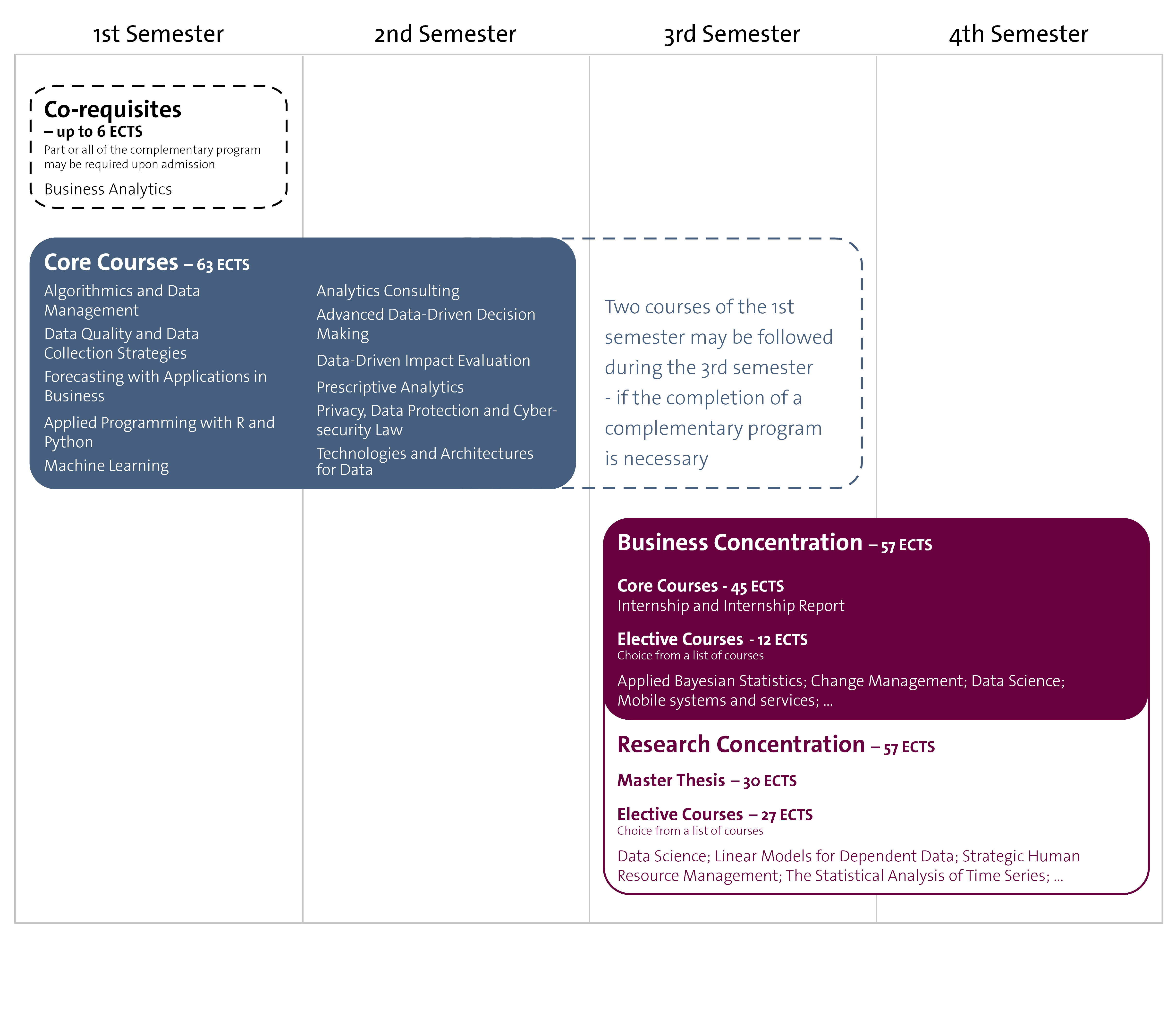Master of Science in Business Analytics

Given "big data's" increasing importance in the economy, the GSEM offers a Master of Science in Business Analytics, which provides a wide range of career opportunities. Positioned at the intersection between data science, statistics, and management, Business Analytics consists of using data to inform strategic decision making under uncertainty and to optimize business processes. Given the proliferation of data in the digital economy, businesses understand the tactical and strategic importance of analytics - learning from data - as a critical field for detecting and monitoring client behaviors and expectations, as well as future market trends.
Objectives
- Support students to manage, analyze, and use data in strategic, tactical, and operational decision making under uncertainty.
- Prepare students for leadership positions in organizations’ digital transformation aimed at creating value for businesses and society.
- Bridge the gap between a university education and professional needs.
The detailed learning goals and objectives are available here.
Professional Prospects
With the proliferation of data and the present lack of analytical talent, the Master in Business Analytics students will have excellent career opportunities across the globe. In 2016, the McKinsey Global Institute estimated that by 2026 the US economy would need 2 to 4 million “business translators” to serve as the link between analytical talent and practical business applications. In 2017, the Business Higher Education Forum and PricewaterhouseCoopers predicted that, just in the US, data science and analytics-related job postings would grow from 2.35 million in 2015 to 2.72 million by 2020.
Curriculum
Program Structure
Co-requisites
Depending on the previous education of the candidate, part or all of the above complementary program can be required at the admission as co-requisites:
- Business Analytics (S210010 - 6 ECTS)
Program Content
All Study programs and information (mainly schedules) can be found on this website. A regular viewing of these pages, especially at the beginning of any semester, is highly recommended, because they may be subject to change.





